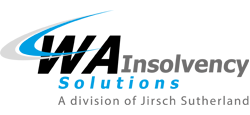
Like many parts of the world, the economic recovery in Hong Kong has been slowed by COVID – and it’s expected that the number of corporate and personal insolvencies will rise. That’s the prediction of KLC CPA (aka KLC Corporate Advisory and Recovery Limited), a leading Chinese insolvency, restructuring and accounting firm based in Hong Kong.
Established in 1985, KLC (an inaugural member of the Global Restructuring and Insolvency Professionals (GRIP) Asia-Pacific network) has long-standing affiliates in 12 countries across Asia-Pacific including China, Korea, Japan, Laos, Cambodia, Vietnam, Singapore, Thailand, Philippines, Malaysia, Australia and New Zealand. According to Kennic Lui, the firm’s Senior Managing Director, businesses in the region have faced a number of challenges in recent years, not least being the pandemic. “Other challenges include geopolitics such as US relations with China, regulatory changes, mutual recognition between China and Hong Kong, and cyber-fraudulent business activities,” he explains.
And while government support measures have helped keep many businesses afloat in the region, that’s likely to change, he says.

“In 2022, it’s expected that the number of insolvencies will exceed 2021,” Mr Lui explains. “The Delta and Omicron variants will slow recovery and the phasing out of financial support from the Government will also trigger an increase in insolvencies towards ‘normal’ levels. As Asia is coming towards the end of pandemic cycle, the lenders will be more robust in recognising/ restructuring bad and doubtful debts in moving forward to a revitalised economy.”
Based on statistics up until November 2021, the number of winding up orders in the region has already increased by at least 13 per cent compared to the previous year.
KLC has clients across a vast range of sectors including financial services, logistics, retail, trading, investment holding, real estate, shipping, hotels and energy. “Industries that have been most impacted by the pandemic include tourism, food & beverage, aviation and retail,” says the firm’s co-Managing Director, Karina Lee.
In response to the pandemic, many of the firm’s clients have changed their strategies or business models to deal with the pandemic, Ms Lee says. “For example, local businesses have downsized, cut their staff numbers and moved to online platforms in order to reduce costs. In addition, many have closed their non-profitable businesses.”
Corporate rescue bill
While the Government didn’t introduce revised insolvency legislation in response to the pandemic, insolvency practitioners in Hong Kong are eagerly awaiting a long-anticipated statutory corporate rescue procedure (CRP), first proposed and drafted over 20 years ago, which would bring the regime more in line with international practice in jurisdictions such as the UK and the USA.
“The Companies (Corporate Rescue) Bill provides a new corporate rescue mechanism whereby a company that is insolvent or likely to become insolvent – or the liquidator / provisional liquidator where a company has already entered into liquidation or is subject to winding-up proceedings – may initiate Provisional Supervision through the appointment of a provisional supervisor,” explains Mr Lui.
“During the Provisional Supervision period, the provisional supervisor, who must be either a certified public accountant or a solicitor, will take control of the company, consider the options for rescuing the company and prepare proposals for a voluntary arrangement (VA) for creditors’ consideration.”
Strengthening cross-border knowledge and resources

KLC handles a lot of cross-border work and co-Managing Director Galaxy Chan says becoming a member of the GRIP Asia-Pacific network will help the firm “keep abreast of what is happening within our industry in different regions”.
“It provides us with the opportunity to get to exchange market intelligence with the GRIP members across the different regions, including the people and the relevant restructuring and insolvency law in the respective regions. We will be able to provide local insights and practical solutions in restructuring/ recovery for the best interest of the stakeholders,” Ms Chan says.
“Cross-border matters are our bread and butter, as Hong Kong is primarily a service economy. We work mainly across China and most parts of Asia, which more than often will require involvement and collaboration with our GRIP members.”
KLC’s main areas of expertise include restructuring, insolvency, forensic accounting and litigation support. The firm’s advisory team in turnaround and corporate restructuring provide services including financial and business restructuring, turnaround management consulting, exit planning and implementation and deal advisory.
“For insolvency/corporate recovery, our focus areas include asset recovery, business and solvency reviews, liquidation and receiverships. In terms of litigation support, our services include expert witness testimony, investigation, marital dissolution service, contract disputes and resolutions. We also offer a range of traditional accounting services,” adds Ms Chan.
Since the firm was established 37 years ago, it has grown from a small CPA practice with two staff into a dynamic and recognised professional firm with 10 partners and principals and around 40 staff.
Providing strong support for staff members is a crucial part of the business. KLC has regular Partners and Managers meetings, and a Social Club that provides a mutually supportive and positive working environment, in which every staff member has the opportunity to develop innovative ideas, communication, team building and leadership skills, which in turn fosters personal growth and involvement.
The firm also supports a number of charities and non-profit organisations across art, education and the medical sectors.











